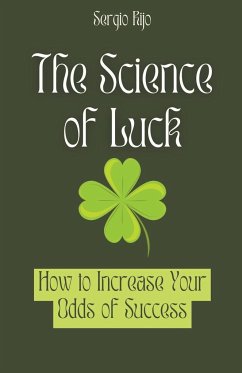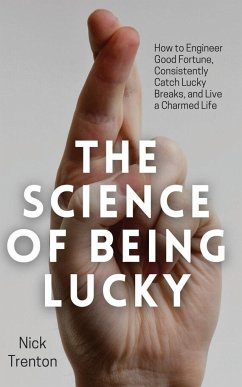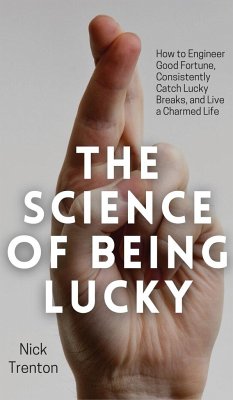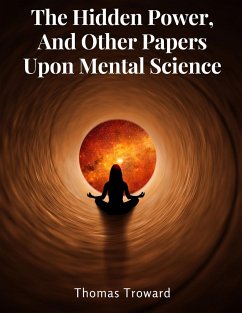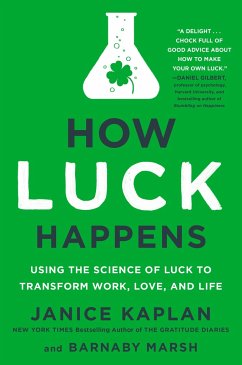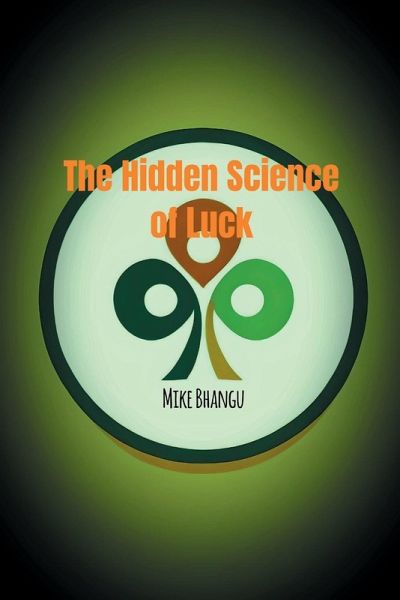
The Hidden Science of Luck
Why Some People Seem to Win at Life
Versandkostenfrei!
Versandfertig in 1-2 Wochen
11,99 €
inkl. MwSt.

PAYBACK Punkte
6 °P sammeln!
Is luck purely a matter of chance, or is there more to it? At its core, luck is often understood as the force that brings good or bad fortune by chance. It's the roll of the dice, the spin of the wheel, or the unexpected windfall. However, luck is also deeply tied to how we interpret events. Two people can experience the same situation-one sees it as lucky, the other as unlucky. This duality raises the question: Is luck something that happens *to* us, or something we create *within* us? Some people seem to attract good fortune like magnets. They win contests, stumble into opportunities, and al...
Is luck purely a matter of chance, or is there more to it? At its core, luck is often understood as the force that brings good or bad fortune by chance. It's the roll of the dice, the spin of the wheel, or the unexpected windfall. However, luck is also deeply tied to how we interpret events. Two people can experience the same situation-one sees it as lucky, the other as unlucky. This duality raises the question: Is luck something that happens *to* us, or something we create *within* us? Some people seem to attract good fortune like magnets. They win contests, stumble into opportunities, and always land on their feet. Are they just born under a lucky star? Research shows that "lucky" people often share common traits-optimism, resilience, and a knack for spotting opportunities. This suggests that luck might not be as random as it seems. While chance plays a role, luck is also shaped by our actions, attitudes, and environments. This introduces the idea that we have more control over our luck than we might think. This book delves into the psychology, sociology, and neuroscience of luck to uncover why some people seem to win at life while others don't. Debunking Myths: It challenges the notion that luck is purely a matter of fate, revealing how "lucky" people actively create their own opportunities. By understanding the science of luck, anyone can learn to cultivate it in their own lives. Just like any other skill, luck can be developed through specific habits, mindsets, and strategies. The Luck Formula: Luck = Preparation + Opportunity + Perception. This formula encapsulates the idea that luck is not just about being in the right place at the right time-it's about being ready to seize opportunities and viewing them positively. Luck, in many ways, is a lens through which we view the world. By shifting that lens, we can transform our lives-not by waiting for luck to find us, but by actively seeking and creating it.





